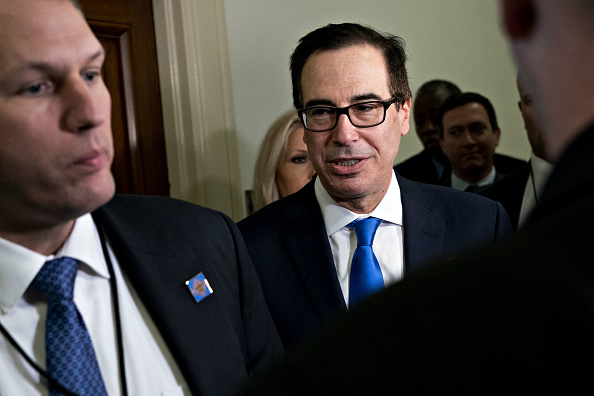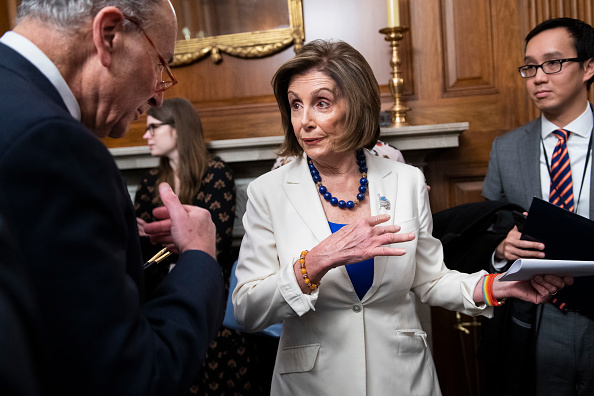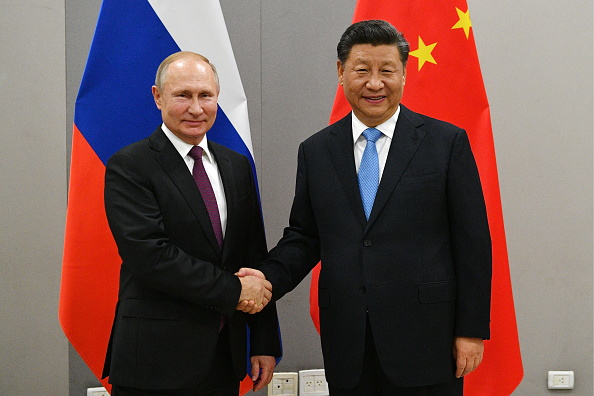
 An Arbitrary Deadline
An Arbitrary DeadlineThe U.S. has planned yet another increase of tariffs on Chinese imports for December 15th, and both sides are racing towards a Phase One agreement before that day appears. U.S. and Chinese negotiators are making progress towards a deal, however President Trump sent a cold shiver through global markets yesterday, saying that he was open to waiting until after the 2020 elections to reach a trade deal.
Trump further escalated his comments, saying that the U.S. would only accept a deal with superior terms; whereas President Xi has emphasized that a deal must treat both sides fairly. Treasury Secretary Steven Mnuchin reinforced Trump's words on Thursday, saying that trade talks were "on track" but that officials were not "going to be confused about an arbitrary deadline."
Meanwhile, Chinese factories have halted a six-month contraction, with improved demand in both domestic and foreign orders. While Beijing has implemented a stimulus for China's manufacturing sector to reduce the burden of the trade war, imports from China to the U.S. declined $1.7 billion in October, according to the U.S. Commerce Department's monthly report, clocking in a 4.8% drop since September.
 Minority Support
Minority SupportThe U.S. House of Representatives is irking Beijing with a tag team of bills concerning China's domestic affairs. Last month, both chambers of Congress almost unanimously passed a pro-democracy Hong Kong rights bill, which was then signed into law by President Trump. The Human Rights and Democracy Act will require an annual review of the freedoms allowed in Hong Kong. Failure to pass the review would allow the U.S. to revoke Hong Kong's special status. Despite a strong warning on retaliatory action, Beijing has thus far taken fairly dovish actions and avoided trade measures.
The U.S. House of Representatives has also passed a bill calling for the Trump administration to respond more strongly to reports of mass detention centers for the Uighur minority in Xinjiang. The reports allege that almost two million Uighurs are being held in re-education camps. In response, Beijing has defended its policies as "counter-terrorism and de-radicalization efforts."
 Pipeline between Friends
Pipeline between FriendsA natural gas pipeline between China and Russia has been launched after five years of construction. President Putin of Russia and President Xi of China jointly inaugurated the pipeline over their shared border, delivering speeches over video chat this week. The pipeline will eventually measure 5,000 miles, reaching from Siberia to Shanghai. China has pledged that natural gas will comprise 10% of its energy by 2020.
The massive energy deal is a sign of Moscow and Beijing's closer ties across the board, experts say, and is likely to be a thorn in Washington's side. Xi and Putin have already pledged to ramp up bilateral trade up to $200 billion by 2024, creating a much-needed economic buffer for China against its tariff war with the U.S., while the two countries have also been ramping up joint military exercises in recent years.
Prepared by China-US Focus editorial teams in Hong Kong and New York, this weekly newsletter offers you snap shots of latest trends and developments emerging from China every week, while adding a dose of historical perspective.
- 2019-11-22 On or Off Again?
- 2019-11-15 Counterweight Critique
- 2019-11-08 "I haven't agreed to anything"
- 2019-11-01 Don’t Hold Your Breath
- 2019-10-25 Weaponizing Diplomacy
- 2019-10-18 Economic Shudders
- 2019-10-11 A “Big Day of Negotiations”
- 2019-10-04 Birthday Celebrations
- 2019-09-28 A World Split in Two?
- 2019-09-20 Another Round
- 2019-09-13 Olive Branch or Olive Twig?
- 2019-09-07 The Unwinnable War?
- 2019-08-31 “Sorry, it’s the way I negotiate”
- 2019-08-23 Tit for Tat
- 2019-08-17 Slowdown Ahead?
- 2019-08-09 Yuan on the Rocks
- 2019-08-02 Ratcheting Up the Crisis
- 2019-07-26 Playing Defense
- 2019-07-19 “Stain of the Century”
- 2019-07-12 Whichever Way the Wind Blows